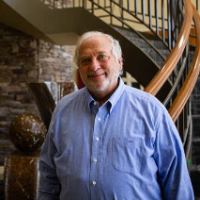 Yutan Criminal Lawyers, Nebraska
Yutan Criminal Lawyers, Nebraska
Sponsored Lawyers
1-10 of 14 matches
Car Accident, Personal Injury, Wrongful Death, Criminal
Attorney James E. Harris always knew that he was destined to become a lawyer. Growing up in Nebraska, he looked up to his father, who was also an attorney, and dreamed that he would one day be able to follow in his footsteps by running his own law firm. In 1975, Jim earned his Bachelor’s Degree and continued on to earn his M.B.A. in 1977 — receiving both degrees from Arizona State University. Soon after graduating with his M.B.A., Jim returned to his home state to pursue his lifelong dream of becoming an attorney. Since earning his J.D. from Creighton University School of Law in 1979, Jim has been serving the legal communities in and around Omaha, Nebraska. Today, he is a recognized, board-certified civil trial advocate through the National Board of Trial Advocacy — serving Omaha and the surrounding areas of Douglas, Sarpy, Dodge, and Lancaster counties. Through his many years of practice, he has come to enjoy aggressively pursuing justice for his clients, even if it means going to court. Being a second-generation lawyer is what makes me passionate about my work. Being able to provide legal guidance for my local communities makes me proud to serve the people I work for. Jim is driven by providing a trustworthy attorney relationship and comfortable client experience. With the many prestigious awards he has received throughout his career, it shows! In his many years of practice, one of the most common client concerns he's discovered is that many people are unsure about whether or not to call on an attorney in the first place. That’s why he decided to build a career grounded in the idea that everyone deserves a comfortable client experience when dealing with legal troubles. His Omaha-based law firm, Harris & Associates, P.C., L.L.O, is dedicated to set apart from other firms by working hard to establish a solid reputation based on his competency and ability to find creative solutions for his clients’ legal needs. He is also committed to providing legal solutions that are cost-effective, including free consultations for all clients.
(more)




